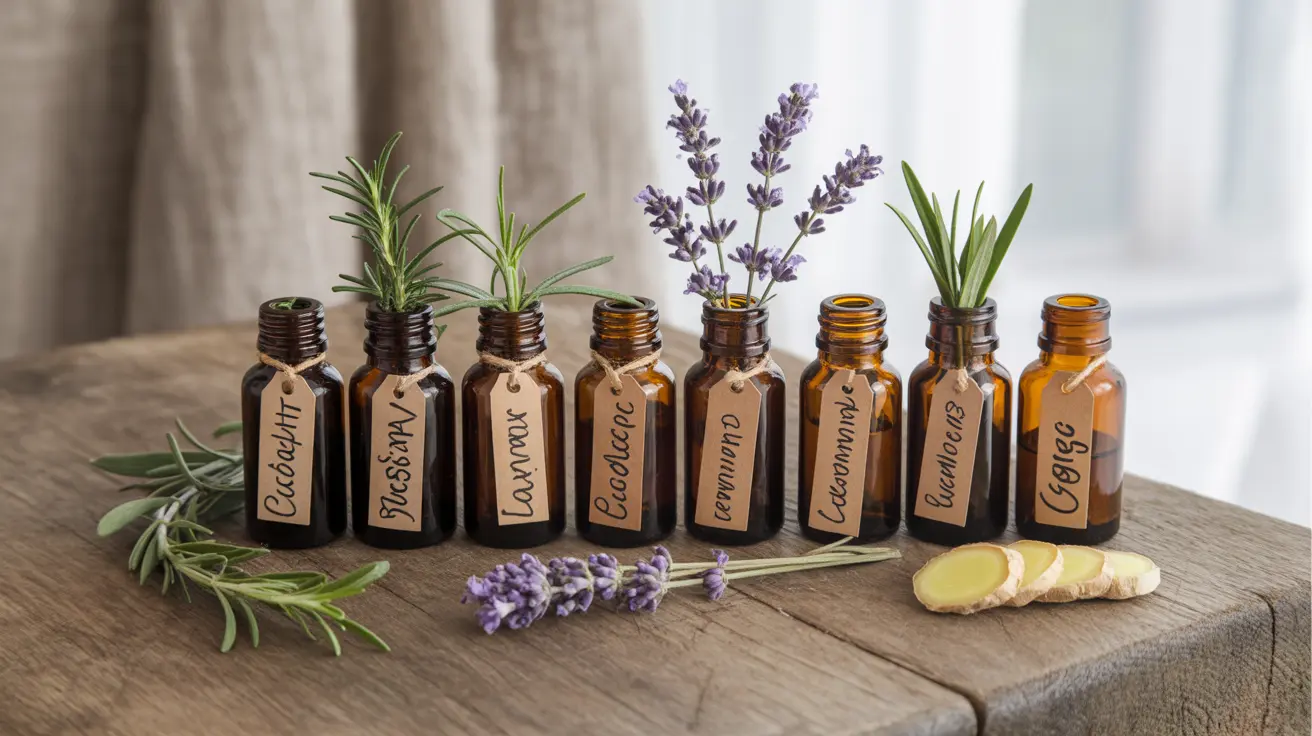Living with gout can be incredibly challenging, with its sudden painful flare-ups affecting daily life. While conventional treatments remain the cornerstone of gout management, many people are exploring natural complementary approaches, including essential oils. These concentrated plant extracts may offer additional support for managing gout symptoms when used appropriately alongside traditional treatments.
Understanding how essential oils can be safely and effectively used for gout symptoms is crucial for those seeking natural support options. Let's explore the most beneficial essential oils for gout and learn how to use them properly.
Understanding Essential Oils and Their Role in Gout Management
Essential oils contain concentrated compounds that may help reduce inflammation and ease pain associated with gout attacks. While they shouldn't replace prescribed medications, these natural solutions can be part of a comprehensive approach to managing gout symptoms.
Most Beneficial Essential Oils for Gout Relief
Several essential oils have shown promise in helping manage gout symptoms:
- Eucalyptus oil: Known for its anti-inflammatory properties
- Rosemary oil: May help reduce pain and inflammation
- Lavender oil: Offers pain-relieving and calming effects
- Peppermint oil: Provides cooling sensation and pain relief
- Lemongrass oil: Contains anti-inflammatory compounds
- Ginger oil: Helps reduce inflammation and improve circulation
Safe Application Methods for Essential Oils
Proper dilution and application are crucial for safety and effectiveness when using essential oils for gout:
- Always dilute with a carrier oil (such as coconut or jojoba oil)
- Use a 2-3% dilution (12-15 drops per ounce of carrier oil)
- Apply to affected areas 2-3 times daily
- Perform a patch test before full application
Creating an Effective Essential Oil Blend
For optimal results, consider creating a specialized blend:
- Mix 3-4 drops each of eucalyptus, peppermint, and lavender oils
- Add to 1 ounce of carrier oil
- Store in a dark glass bottle
- Apply gently to affected joints
Important Safety Considerations
While essential oils can be beneficial, certain precautions are necessary:
- Never apply undiluted oils directly to skin
- Avoid using near eyes or mucous membranes
- Discontinue use if irritation occurs
- Consult healthcare provider before starting use
- Keep oils away from children and pets
Integrating Essential Oils with Traditional Gout Treatment
Essential oils work best as part of a comprehensive gout management plan that includes:
- Following prescribed medication regimens
- Maintaining a proper diet
- Staying hydrated
- Regular exercise when possible
- Stress management techniques
Frequently Asked Questions
- What essential oils are most effective for relieving gout pain and inflammation?
The most effective essential oils for gout include eucalyptus, rosemary, lavender, peppermint, lemongrass, and ginger oils. These oils contain natural compounds that may help reduce inflammation and ease pain when properly diluted and applied.
- How should essential oils be safely used to manage gout symptoms?
Essential oils should always be diluted with a carrier oil before application, using a 2-3% dilution ratio. Apply the diluted mixture to affected areas 2-3 times daily, after performing a patch test to ensure no adverse reactions.
- Can essential oils replace standard gout treatments like medication and diet changes?
No, essential oils should not replace standard gout treatments. They should be used as a complementary approach alongside prescribed medications, proper diet, and lifestyle modifications recommended by healthcare providers.
- Are there any risks or side effects associated with using essential oils for gout?
Yes, potential risks include skin irritation, allergic reactions, and chemical burns if used undiluted. Always perform a patch test, follow proper dilution guidelines, and discontinue use if any adverse reactions occur.
- How do essential oils like lemongrass, celery seed, or ginger work to help with gout?
These essential oils contain natural compounds with anti-inflammatory and analgesic properties. They work by potentially reducing inflammation, improving circulation, and providing pain relief when applied topically to affected areas.




